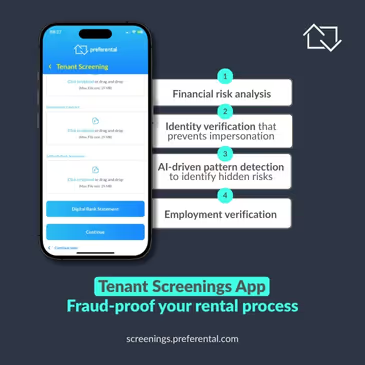Exposed: How AI Is Supercharging Property Scams
Top 3 Takeaways
- AI tools now help scammers create ultra-realistic fake listings and documents.
- Social media impersonation of agents is on the rise across platforms.
- Verifying agents and inspecting properties are critical first steps to safety.
How to Protect Yourself from Digital Deception
In today’s fast-evolving digital world, property scams have become more convincing and more dangerous than ever before. Thanks to artificial intelligence (AI), con artists can now generate fake property listings, falsify documents, and even impersonate real estate professionals with alarming accuracy.
“Scammers now have unprecedented access to advanced tools like AI,” warns Adrian Goslett, Regional Director and CEO of RE/MAX Southern Africa.
“These tools allow them to create counterfeit listings, documents, and identities that look completely legitimate and incredibly hard to spot.”
Common AI-Driven Property Scams to Watch Out For
- AI-Generated Property Photos
Scammers use AI to create realistic images of homes that don’t exist or alter real listings to misrepresent condition and location. - Fake Documents
Lease agreements, title deeds, and even proof of ownership can now be faked using AI-generated templates and signatures. - Impersonation on Social Media
Fraudsters create professional-looking social media profiles, claiming to be affiliated with reputable agencies. These may include fake testimonials, logos, and contact info. - Bait-and-Switch Listings
Properties listed at below-market prices draw attention, only for the scammer to pressure buyers into quick deposits without proper verification.
How to Safeguard Yourself
RE/MAX Southern Africa offers these practical steps to avoid becoming a victim:
- Verify Agent Credentials
Always check with the agency directly. Use the company’s official website or phone line, not links sent via chat or email. - Visit the Property in Person
Don’t rely solely on photos or virtual tours. If you can’t visit, appoint someone you trust to view it on your behalf. - Avoid Urgent Payment Demands
Scammers often pressure you to pay quickly to "secure" the deal. Take time to review everything and never send money without verified documentation. - Inspect Online Profiles
Look for red flags: brand-new accounts, low engagement, or mismatched details. If unsure, contact the agency directly. - Demand Verified Documentation
Legitimate transactions include credit checks, FICA compliance, and signed agreements — all through traceable, professional platforms.
“Trust your instincts,” adds Goslett. “If a deal feels too good to be true or you're being rushed, step back. Rather work with agents who are transparent, reputable, and verified.”
The Way Forward for Buyers and Tenants
As AI continues to reshape industries both for good and for ill the property sector must adapt. Consumers need to stay informed, practice due diligence, and always question deals that seem unusually easy, cheap, or rushed.
“Technology isn’t the problem, misuse is,” says Goslett.
“The best defence is awareness. Know what to look out for and only deal with property professionals who are backed by trusted brands and regulated systems.”
In an era of digital convenience, your best safeguard is human verification. Ask questions. Do the checks. And never assume anything online is real until it’s verified.













.avif)


.avif)

.avif)




.svg)





























.avif)
